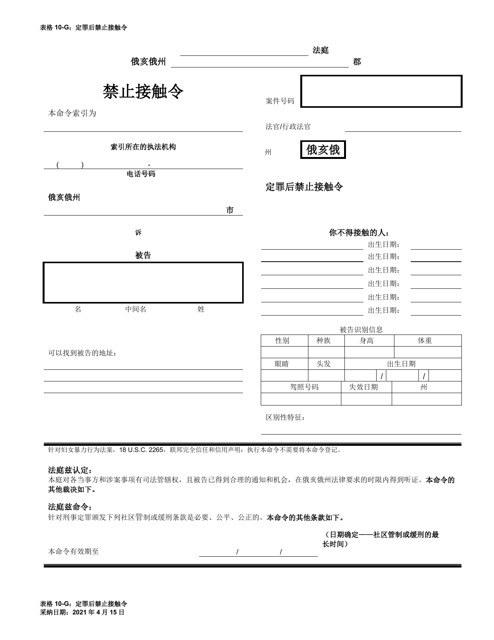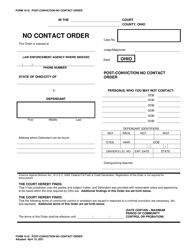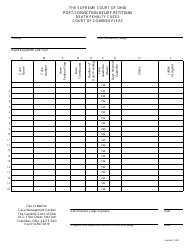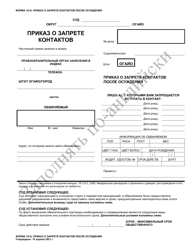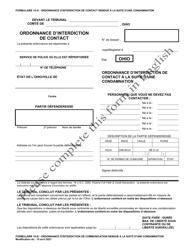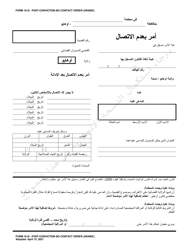Form 10-G Post-conviction No Contact Order - Ohio (Chinese)
This is a legal form that was released by the Ohio Court of Common Pleas - a government authority operating within Ohio.
The document is provided in Chinese. As of today, no separate filing guidelines for the form are provided by the issuing department.
FAQ
Q: What is a Form 10-G?
A: Form 10-G is a document used in Ohio to request a post-conviction no contact order.
Q: What is a post-conviction no contact order?
A: A post-conviction no contact order is a court order that prohibits an individual from contacting or communicating with a certain person.
Q: Who can use Form 10-G?
A: Anyone who has been convicted of a crime in Ohio and wants to request a post-conviction no contact order can use Form 10-G.
Q: What information is required on Form 10-G?
A: Form 10-G requires the individual's personal information, details about the conviction, and information about the person the individual wants to have a no contact order against.
Q: Are there any fees associated with filing Form 10-G?
A: There may be filing fees associated with filing Form 10-G. The amount of the fees varies by county.
Q: What happens after Form 10-G is filed?
A: After Form 10-G is filed, a judge will review the request and decide whether to grant or deny the post-conviction no contact order.
Q: What are the consequences of violating a post-conviction no contact order?
A: Violating a post-conviction no contact order can result in criminal charges and penalties, including fines and imprisonment.
Q: Can a post-conviction no contact order be modified or terminated?
A: Yes, a post-conviction no contact order can be modified or terminated. A request for modification or termination can be filed with the court.
Q: Is the information on Form 10-G confidential?
A: The information on Form 10-G is not confidential and may be accessible to the public.
Form Details:
- Released on April 15, 2021;
- The latest edition provided by the Ohio Court of Common Pleas;
- Easy to use and ready to print;
- Quick to customize;
- Compatible with most PDF-viewing applications;
Download a printable version of Form 10-G by clicking the link below or browse more documents and templates provided by the Ohio Court of Common Pleas.
